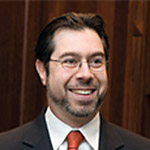Falling oil and gasoline prices have prompted some in Congress to debate about increasing the federal fuel tax, which helps fund highway and bridge construction, among other projects.

Increasing the tax, which hasn’t been raised since 1993 and isn’t tied to inflation, to help offset revenue lost through lower prices at the pump may seem like a good idea in theory, but it’s much more difficult in practice, says a tax expert at Washington University in St. Louis.
“Gas taxes are typically considered a type of Pigouvian taxes, which are taxes not necessarily meant to raise revenue but instead to offset externalities,” said Adam Rosenzweig, JD, professor of law and expert on tax law and policy.
“One difficulty with gas taxes, in a similar way to cigarette taxes, is that the Pigouvian goal of reducing externalities often conflicts with the revenue goal of the tax,” he said. “In other words, if human beings completely stopped smoking there would be no revenue from cigarette taxes. Similarly, if gas taxes completely ended the use of gasoline, there would be no revenue from gas taxes.”
This is problematic, Rosenzweig said, because the federal gas tax is used to pay for federal highways.
“One response to this concern is that, unlike cigarettes, there is an efficient amount of gasoline use and the point of gasoline taxes is not to completely eliminate gasoline use altogether, but only to reduce the use to the efficient level,” he said.
“Thus, if the tax is raised to a certain limit, people will still buy gasoline and pay the tax. In economic terms, the tax would apply to marginal and inframarginal gasoline usage.”
Pigouvian taxes are named after economist Arthur Pigou, who developed the concept of economic externalities. Rosenzweig argues that there are two problems with Pigouvian taxes in general, and in particular as applied to gas taxes.
First, most people believe that gas taxes tend to be regressive because people with lower incomes tend to consume a higher percentage of their income on gasoline than wealthier people.
Second, the tax would only be efficient to the extent it matches the externalized costs of gasoline. Since this can be very difficult to measure, he said, it may be possible to enact a gas tax that is counterproductive as either being too high or too low.
For these reasons, he said, some support gas taxes not as a Pigouvian tax but as a form of indirect user fee for use of the federal highways.
“In other words, the assumption is that drivers who use the highways more often will need to buy more gasoline, resulting in higher taxes to pay for highway repair and building,” Rosenzweig said. “This argument has been criticized on the basis that gas taxes are too indirect to highway usage to be a useful user fee because, for example, drivers who only use local roads or rural roads would also pay the federal gas tax.
“Instead, such critics argue that highway tolls or a tax based on miles driven would be a better user fee than a gas tax,” he said.